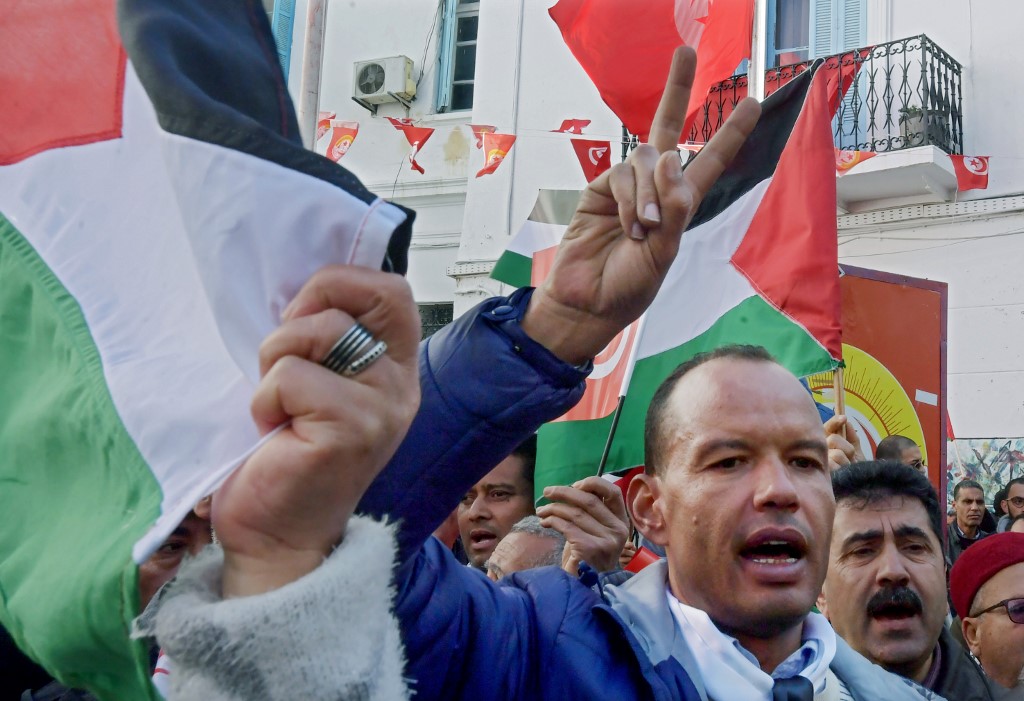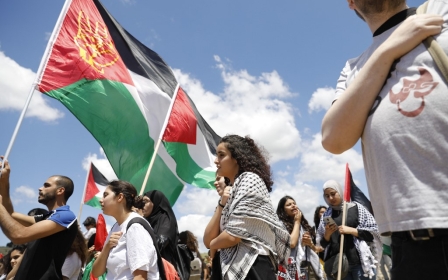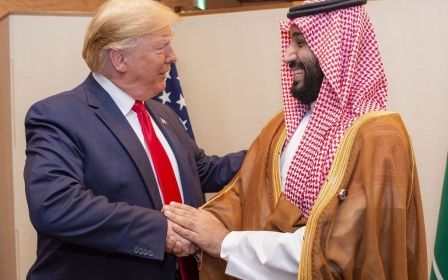Why acknowledging Israeli apartheid is not enough

If one were forced to find a single redeeming aspect to the Trump administration’s “deal of the century”, it would be that the crass racism that pervades this offensive plan gives greater currency to the apartheid analogy.
The outpouring of editorials and opinion pieces by analysts who had so far shied away from using the term, suggests that they were indeed ready to embrace it.
And the speed with which such pieces were published indicates that many of these writers might not have even felt the need to read the 181-page document before finally acknowledging that Israel’s policies and practices indeed amount to apartheid, which Trump’s plan attempts to legitimise.
Nothing new
Indeed, there is little that is truly novel in this plan, whether it is a demilitarised, unviable, discontiguous Palestinian state, or Israel’s continued control of Palestinian borders and annexation of illegally occupied lands. The plan even stipulates that Israel will continue to determine which “dual-use” materials will be allowed into Palestine, the same type of restrictions currently imposed on the besieged Gaza Strip in the name of “security”.
New MEE newsletter: Jerusalem Dispatch
Sign up to get the latest insights and analysis on Israel-Palestine, alongside Turkey Unpacked and other MEE newsletters
While we of course welcome new allies, we must also discuss how Zionism is a form of imperialism and settler-colonialism
Palestinians need pipes for their plumbing? Tough luck, pipes can also be used for building rockets; Palestinians will need to do without toilets.
The denunciations of Israeli apartheid since this “deal” has been unveiled are welcome, of course. Yet, for many Palestinians, this is nothing new. Indeed, it was South Africa’s anti-apartheid struggle that provided the model for the 2005 call for global solidarity in the form of boycott, divestment and sanctions (BDS) - and many of us argued for many years prior that Zionism is racism.
There are, however, some limitations to the use of the apartheid analogy. It would be overly optimistic for activists to assume that a large number of people who had not yet grasped Israel’s reality will do so now, as a result of a few more progressive analysts equating Israel’s practices and policies with what is acknowledged as a crime against humanity.
Organising grassroots support
The US is divided enough that US President Donald Trump’s supporters will embrace anything he proposes, while those critical of him will reject his imperial hubris.
What that means for Palestine rights activists is that we must continue to grow and organise grassroots support for justice for the Palestinian people - but we cannot, and do not, expect such growth to come as a result of Trump’s unveiling of his plan to legitimise Israeli apartheid.
We have been arguing for decades that Israel is not a democracy. Trump’s latest open embrace of Israeli Jewish supremacy will not create much of a ripple effect among progressives.
While we of course welcome new allies, we must also discuss how Zionism is a form of imperialism and settler-colonialism, making it clear that it is fundamentally wrong - as all forms of imperialism and settler-colonialism are wrong - for Jews anywhere in the world to claim a “birthright” in Palestine.
Judaism is a religion, not a nationality, and Jewish self-determination should not happen at the expense of another people. Indeed, Jewish self-determination can and should happen everywhere, and does not necessitate the trappings of a nation-state.
This understanding goes beyond an analysis of racism; it hinges on a denunciation of settler-colonialism disguised as necessary for survival.
Intersectional struggle
South Africa’s history, and its tormented present, must be used as a cautionary model for Palestine’s future. As we look at South Africa today, more than a quarter of a century since the official end of apartheid, we see ongoing economic disparity, with the majority of black Africans still living in extreme poverty, while whites retain most positions of power.
We see ongoing gender inequality, because of a lack of intentionality in addressing sexism during the struggle to end official racism. And of course, we see extreme corruption at the governmental level.
The South African apartheid analogy is useful in illustrating the many ways that Israel is a racist state. But if that is all we look for in our struggle to liberate Palestine, we will have failed the Palestinian people, by not tending to the many problems that currently exist - and those that will arise, once the policy of official racism is dismantled.
Fortunately, many of us are aware that a struggle that is not intersectional is bound to fail the majority of the dispossessed and disenfranchised, even if it is “successful” in overcoming the one oppressive system it targets. And because Palestinians today are a diaspora people, with a majority living outside the historic boundaries of their homeland, our intersectionality is a global one, with connections to dispossessed and disenfranchised communities way beyond the boundaries “from the river to the sea”.
Imperial arrogance
One sobering aspect of the otherwise successful BDS campaign is that many of its victories have not yet translated into an improvement of the circumstances of the Palestinian people.
What we have been celebrating is a change in the discourse about Israel and Palestine, and what we have been waiting for is the moment when that hitherto strictly discursive change will manifest in Palestinian liberation.
Even seasoned analysts who expected nothing positive to come of Trump's plan were shell-shocked by some of the details
Trump’s “deal of the century” does not impact the progress we have been making at the level of grassroots organising, even though it will aggravate the severity of the “facts on the ground” that will need to be reversed.
And these are significant indeed: even seasoned analysts who expected nothing positive to come of Trump’s plan were shell-shocked by some of the details. But Trump’s plan will also eventually fail, possibly because it is so shamelessly racist - an expression of imperial arrogance that is a full century too late, with its echoes of Lord Balfour’s 1917 declaration.
The struggle carries on. For now, we must vote Trump out.
The views expressed in this article belong to the author and do not necessarily reflect the editorial policy of Middle East Eye.
Middle East Eye delivers independent and unrivalled coverage and analysis of the Middle East, North Africa and beyond. To learn more about republishing this content and the associated fees, please fill out this form. More about MEE can be found here.







